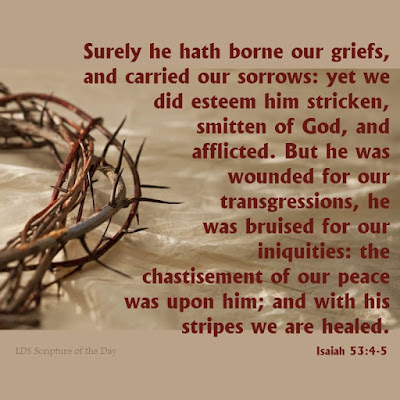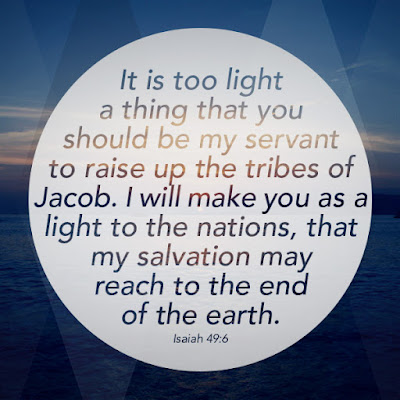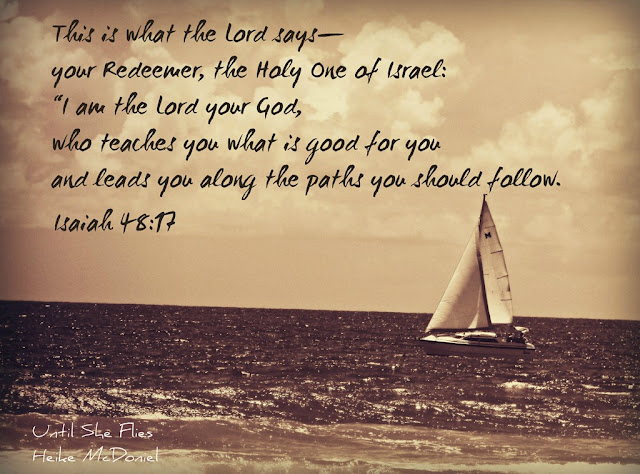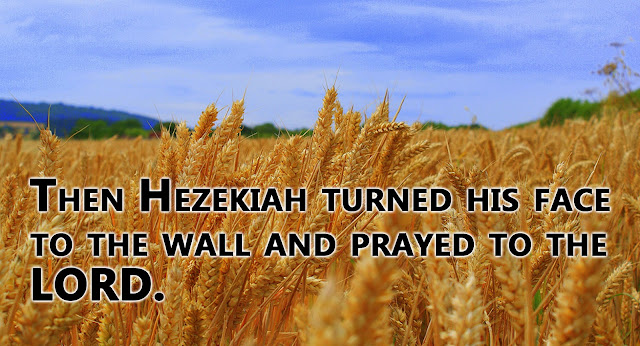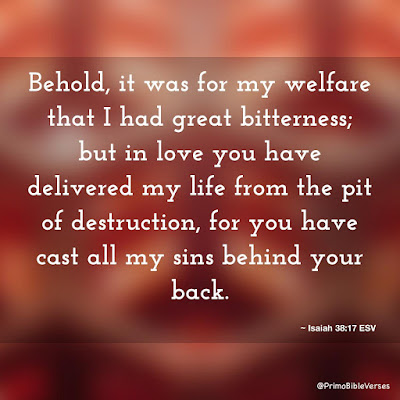Day Four: Read Isaiah 44:24-28; 45
1. What prophecy does God make regarding Jerusalem in Isaiah 44:24-28? That Jerusalem and Judah's other cities shall be rebuilt, reinhabited, the temple's foundation laid, that Cyrus will be His shepherd and "shall perform all my pleasure."
2. From Isaiah 44:28 and 45:1-7, who will be the Lord's instrument and why has the Lord chosen
him? Give verses.
Cyrus 44:28
Isa 45:3 And I will give thee the treasures of darkness, and hidden riches of secret places,
that thou mayest know that I, the LORD, which call thee by thy name, am the God of Israel.
For Jacob and Israel's sake. Isaiah 45$

3. From verses 9-13, what is God's answer to those who might question His using a Gentile king
as His instrument?
He made everything, who can question it?
4. Who will be saved (verses 14-25)?
Isa 45:17 But Israel shall be saved in the LORD with an everlasting salvation: ye shall not be ashamed nor confounded world without end.
Isa 45:25 In the LORD shall all the seed of Israel be justified, and shall glory
Day Five: Read Isaiah 46-47
1. From 46:1-7, what is the relationship between these people and their God or gods?
a. Israel--In contrast, God carries His people (instead of them carrying Him, lol!)
“Listen to me, O house of Jacob, all the remnant of the house of Israel, who have been borne by me from before your birth, carried from the womb; even to your old age I am he, and to gray hairs I will carry you. I have made, and I will bear; I will carry and will save. Isaiah 46:3-4
b. Babylon--They carry their idols and the weight/burden of them causes the idols to stoop.
Bel bows down; Nebo stoops; their idols are on beasts and livestock; these things you carry are borne as burdens on weary beasts. They stoop; they bow down together; they cannot save the burden, but themselves go into captivity. Isaiah 46:1-2
2. From 46:8-13, what is Israel supposed to
a. Remember--the former things of old--that there is no other God but He, able to declare the end from the beginning
b. Believe--that His counsel will stand and He will accomplish His purpose (v11)
3. What names of God are found in 47:4? Our Redeemer, Lord of Hosts, Holy One
4. From 47:5-11, what has Babylon said of herself that only God can truthfully say? "I shall be mistress forever." (v 7) The idea is that she can control her own destiny--is self existent in a sense, “I am, and there is no one besides me; I shall not sit as a widow or know the loss of children” (v 48).
********************
Reflections on Babylon's fascination with astronomy:
"You are wearied with your many counsels; let them stand forth and save you, those who divide the heavens, who gaze at the stars, who at the new moons make known what shall come upon you.
Behold, they are like stubble; the fire consumes them; they cannot deliver themselves from the power of the flame. No coal for warming oneself is this, no fire to sit before!" Isaiah 47:13-14
Thy wisdom and thy knowledge, it hath perverted thee. The astronomical "wisdom and knowledge" of the Babylonians, confessed by the Greeks to have been the origin of their own astronomical knowledge, led them on to that perversion of true science, astrology, which, when once entered upon, seduces the mind from all genuine and fruitful study of the celestial phenomena, and leads it into a labyrinth of absurdities. It also puffed them up, and made them regard themselves as altogether superior to other nations (see the comment on Isa_47:8, sub fin.). -Pulpit Commentary
Babylon was enamored with fortune-telling, spells, incantations, and such. I was browsing this online book this morning
,Myths and Legends of Babylonian and Assryia, by Lewis Spence, 1917. I don't have the time to get too far into the history of such here, but lots of interesting information in here for sure. One tidbit is that Babylonian superstitions were the foundation for the Medieval fascination with such. Another area for thought is the close ancient connection between science, religion, and superstition (pseudo-science)---fields that have since fought to distance themselves from each other. State and church were also united, as the priesthood and kingship were closely affiliated. Medical knowledge was also intertwined, as the priest was often viewed as a healer as well.
 |
Babylonian assault--Assault on a City from a
bas-relief representing the Campaigns of
SennacheribPhoto W.A. Mansell and Co. |
We find the gods so closely connected with ancient Chaldean astronomy as to be absolutely identified with it in every way. A number was assigned to each of the chief gods, which would seem to show that they were connected in some way with mathematical science. Thus Ishtar’s number is fifteen ; that of Sin, her father, is exactly double that. Anu takes sixty, and Bel and Ea represent fifty and forty. Ramman is identified with ten. -Spence, p. 237
Another interesting point:
But as civilization proceeded and theological opinion took shape, religious ceremonial began to take the place of what was little better than sorcery.
The tight connection between religious ritual/high church ceremony and sorcery is scary to think about. My gut thought here is that although remembrance (through ritual, such as the Lord's Supper) is important and meaningful, we must be careful to not become lost in the ceremonies themselves or let them assume undue powers.
The final comments of this work are poetic and profound:
A Great Lesson
The answer to such a question depends upon ourselves—upon each and every one of us. If we quit ourselves as civilized men, striving and ever striving to refine and purify our lives, our conduct, our intellectual outlook, to spiritualize our faith, then though the things of our hands may be dust, the works of our minds, of our souls shall not vanish, but shall remain in the consciousness of our descendants so long as human memory lasts. The faith of ancient Babylon went under because it was built rather on the worship of frail and bestial gods than the love of truth,—gods many of whom were devils in disguise, but devils no whit worse than our fiends of ambition, of greed, of pugnacity, of unsympathy. Through the worship of such gods Babylon came to oblivion. Let us contemplate the colossal wreck of that mighty work of man, and as we gaze over the gulf of a score of centuries to where its “cloud-capp’d towers and gorgeous palaces” glitter in the mirage of legend, let us brace ourselves for the struggle which humanity has yet to wage with darkness, with disease, with superstition. But while we remember her fall with sadness, let us think generously and kindly of her dead mightiness, of the ancient effort she made, striving after her lights, of her picturesque and many-coloured life, and, not least, of her achievements—the invention of those symbols by which the words of man can be transferred to his brother across the silent ocean of time. -p. 380
Published a hundred years ago, Spence's charge to humanity is still relevant and piercing. It smacks of the positive humanism of the early 20th century, but it carries the weight of our involvement well. I would add that, as in this commentary of Isaiah 45, the battle and outcome is not determined by us, by our power, or goodness, but by the unalterable, solid, already spoken and determined will of God, the only self-created one.
 Isa 53:4 Surely he has borne Elizabeth's griefs and carried her sorrows; yet she esteemed him stricken, smitten by God, and afflicted.
Isa 53:4 Surely he has borne Elizabeth's griefs and carried her sorrows; yet she esteemed him stricken, smitten by God, and afflicted.






